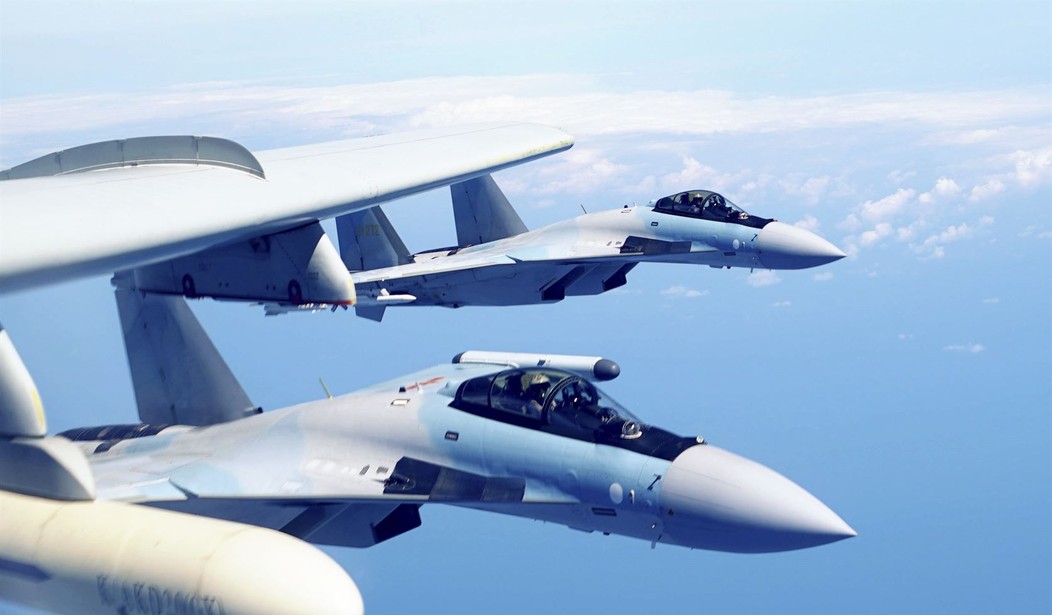Given all of the dour foreign policy news making the rounds lately, you're to be excused if you are harboring concerns that the United States might find itself dragged into yet another war. The situation in the Middle East grows more tense by the day, with Israel's enemies making increasingly bold moves toward our ally. The situation in Russia is equally worrisome, with Putin continuing to make thinly veiled references to "the nuclear option" when dealing with Ukraine's attacks on that nation using advanced weapons with United States flags adorning them. But those aren't the only potential flashpoints that military analysts are keeping a close eye on. What about China? The situation across the Strait of Taiwan seems to have calmed down (at least a bit) in recent months, but that's an open sore that has been festering for quite some time. So is China placing itself on a war footing while the world is distracted by other conflicts elsewhere? Foreign Affairs Magazine points to a few factors that might hinder further Chinese aggression at this time, but they also notice that China seems to still be on a war footing in terms of how it is managing it's economy and military production capabilities.
Despite the country’s current economic challenges, its defense spending is soaring and its defense industry is on a wartime footing. Indeed, China is rapidly developing and producing weapons systems designed to deter the United States and, if deterrence fails, to emerge victorious in a great-power war. China has already caught up to the United States in its ability to produce weapons at mass and scale. In some areas, China now leads: it has become the world’s largest shipbuilder by far, with a capacity roughly 230 times as large as that of the United States.
Between 2021 and early 2024, China’s defense industrial base produced more than 400 modern fighter aircraft and 20 large warships, doubled the country’s nuclear warhead inventory and more than doubled its inventory of ballistic and cruise missiles, and developed a new stealth bomber. Over the same period, China increased its number of satellite launches by 50 percent. China now acquires weapons systems at a pace five to six times as fast as the United States. Admiral John Aquilino, the former commander of the U.S. Indo-Pacific Command, has described this military expansion as “the most extensive and rapid buildup since World War II.”
It's true that China's economy has hit a rocky point in the past year or two. As noted above, they are dealing with high youth unemployment, a troubled real estate market, increased government debt, and an aging society. In more normal times, that combination should lead to the Chinese constraining their defense spending in favor of domestic productivity measures. But things haven't worked out that way. China has greatly expanded and modernized its naval capabilities and added many next-generation fighter jets to its air force. They have also greatly expanded their footprint in orbit, believed by many analysts to include hunter-killer satellites, an area where the United States has been rapidly falling behind.
Also, even if China were to suddenly go to war, the only likely target would be Taiwan. While Russia is threatening the potential for an all-out war with the NATO alliance, Taiwan is literally in China's backyard and within easy reach of its military strike capacity. Further, Taiwan isn't part of a global alliance. They exist in a diplomatic "gray zone" where no country would be obligated to rush to their military defense if they are attacked. A global war or several limited fights abroad would be economically crippling for all involved, including the United States. And who really wants to step forward and fire the first shot at China in response?
Xi Jinping has made clear that developing a world-class military is central to his goal of pursuing the “great rejuvenation of the Chinese nation on all fronts.” That might simply be rhetoric to calm the fears of China's allies, but direct warfare isn't the only option on the table for China. They still maintain control of vast swaths of the global supply chain. The United States led the way in exploring new avenues of "economic warfare" against Russia after the latest invasion of Ukraine. Those efforts haven't had much of an impact on Russia, but imagine what sort of economic damage China could inflict without ever firing a shot.
Currently, four of the world’s top ten largest companies in combined defense and nondefense revenue are Chinese. And China isn't hobbled by the profit demands of capitalist players in the defense industrial marketplace. State-run companies do as they are instructed, even if they will have to sort out the damages after the fact. The reality is that China is advancing its military capabilities in both economic and defense-industrial terms. They may not be preparing for war, but if not they're doing an awfully good impersonation of a country that is. Is the United States ready to tackle that sort of challenge? That certainly doesn't appear to be the case.








Join the conversation as a VIP Member